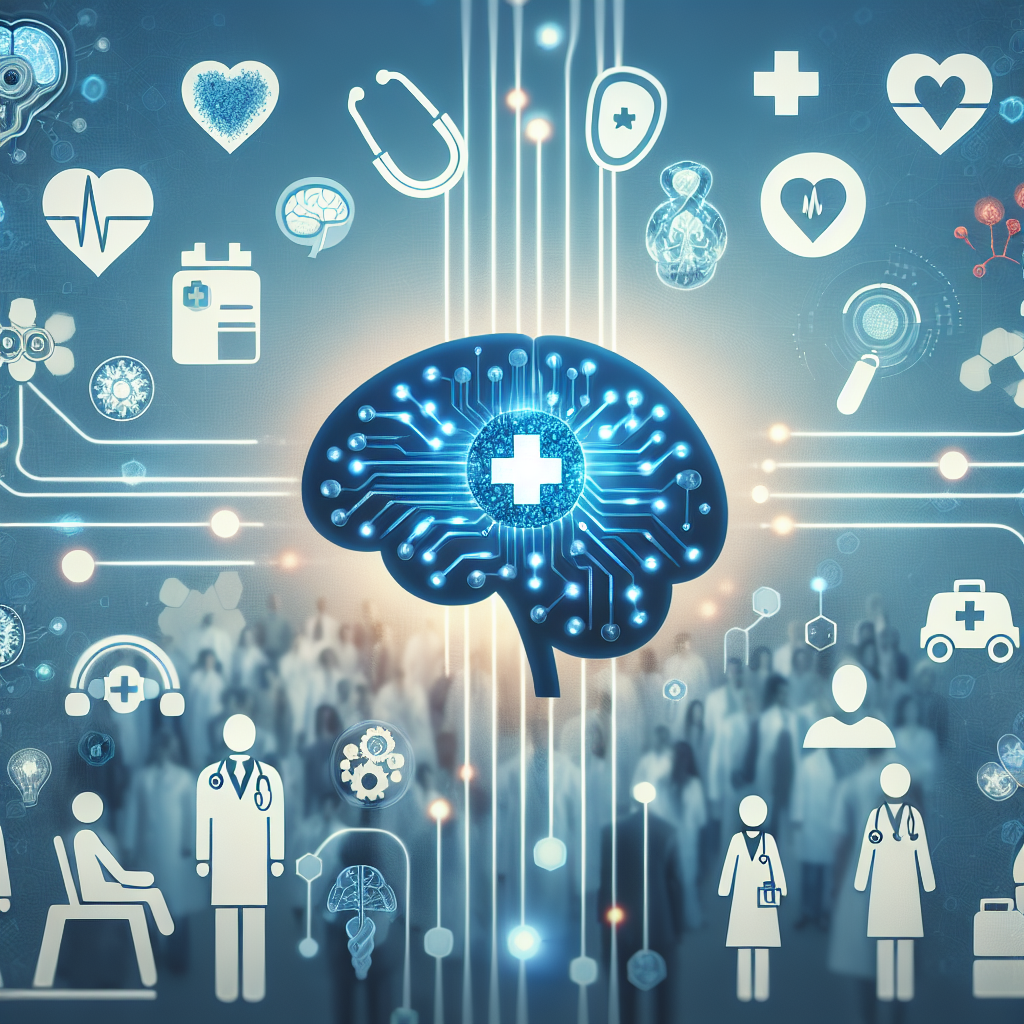Artificial Intelligence (AI) has revolutionized many industries, and healthcare is no exception. The integration of AI in healthcare has the potential to improve patient care in a variety of ways, from diagnosing diseases to personalized treatment plans. In this article, we will explore the role of AI in improving patient care and how it is changing the landscape of healthcare.
1. Diagnosing Diseases: One of the most significant ways AI is improving patient care is through its ability to assist in diagnosing diseases. AI algorithms can analyze medical images, such as X-rays, MRIs, and CT scans, to detect abnormalities and help physicians make more accurate diagnoses. This can lead to earlier detection of diseases, which can improve patient outcomes and survival rates.
2. Personalized Treatment Plans: AI can also help create personalized treatment plans for patients based on their individual characteristics and medical history. By analyzing large amounts of data, AI algorithms can identify patterns and trends that can help physicians determine the most effective treatment options for each patient. This can lead to better outcomes and reduced side effects for patients.
3. Remote Monitoring: AI technology can also be used for remote monitoring of patients, allowing healthcare providers to track vital signs and other health metrics in real-time. This can help detect changes in a patient’s condition early on, allowing for timely interventions and preventing hospitalizations.
4. Drug Discovery: AI is also playing a significant role in drug discovery and development. By analyzing large datasets, AI algorithms can identify potential drug candidates more quickly and accurately than traditional methods. This can lead to the development of new treatments for diseases that were previously untreatable.
5. Predictive Analytics: AI can help predict patient outcomes and identify patients at high risk of developing certain conditions. By analyzing patient data, AI algorithms can identify patterns that can help healthcare providers intervene early and prevent adverse events.
6. Administrative Tasks: AI can also help streamline administrative tasks in healthcare, such as scheduling appointments, processing insurance claims, and managing electronic health records. This can free up healthcare providers to focus more on patient care and improve overall efficiency in healthcare systems.
FAQs:
1. How does AI help in diagnosing diseases?
AI algorithms can analyze medical images, such as X-rays, MRIs, and CT scans, to detect abnormalities and help physicians make more accurate diagnoses. This can lead to earlier detection of diseases, which can improve patient outcomes and survival rates.
2. Can AI create personalized treatment plans for patients?
Yes, AI can help create personalized treatment plans for patients based on their individual characteristics and medical history. By analyzing large amounts of data, AI algorithms can identify patterns and trends that can help physicians determine the most effective treatment options for each patient.
3. How does AI assist in drug discovery?
AI is playing a significant role in drug discovery and development by analyzing large datasets to identify potential drug candidates more quickly and accurately than traditional methods. This can lead to the development of new treatments for diseases that were previously untreatable.
4. How can AI help in remote monitoring of patients?
AI technology can be used for remote monitoring of patients, allowing healthcare providers to track vital signs and other health metrics in real-time. This can help detect changes in a patient’s condition early on, allowing for timely interventions and preventing hospitalizations.
In conclusion, the role of AI in improving patient care is significant and continues to evolve as technology advances. From diagnosing diseases to creating personalized treatment plans, AI has the potential to revolutionize healthcare and improve patient outcomes. It is essential for healthcare providers to embrace AI technology and incorporate it into their practice to provide the best possible care for their patients.

